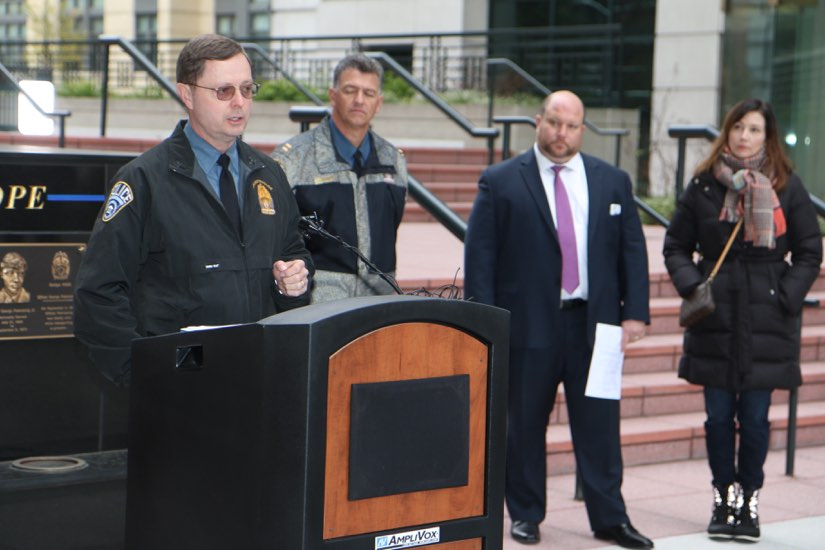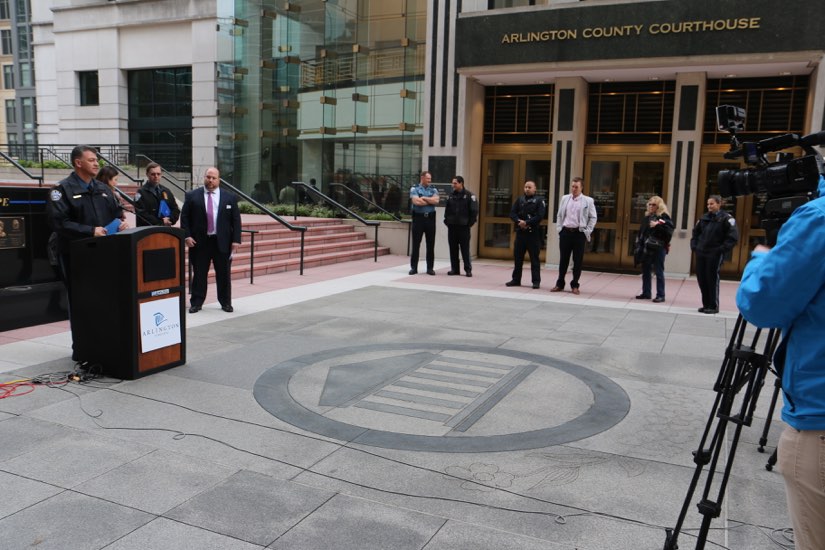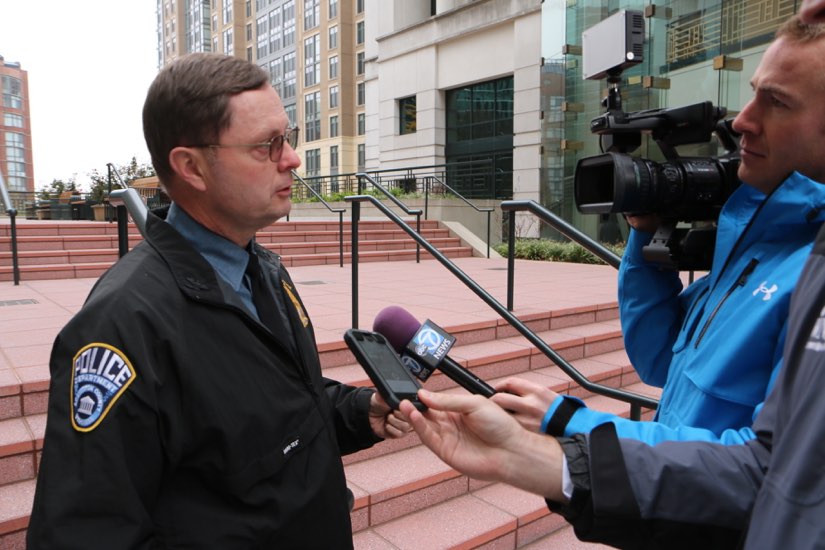The Arlington County Police Department has a new social media platform over which it can share information directly with residents.
The department is partnering which Nextdoor, a neighborhood-oriented social networking site built to connect residents in specific communities across the country.
“I believe this particular program offers unique opportunities we haven’t had in the past,” Arlington Police Chief Jay Farr said in a press conference Wednesday. “This is going to allow us to focus specifically on neighborhoods and concerns in those neighborhoods that are of interest to that particular community.”
However, Nextdoor is not new to Arlington County. According to the company, 73 of Arlington’s civic associations — about 88 percent of neighborhoods — are already represented on the network, and many have been for a few years.
For example, Marcia Burgos-Stone started a Nextdoor page for Columbia Forest shortly after she moved there.
“I wanted to know who my neighbors were, but I moved in and I didn’t really see, talk to or meet any of them,” she said. “It’s a way to help people out, plan social activities and share information. It brings people together.”
ACPD’s district teams will use Nextdoor to share crime and safety information with residents in specific neighborhoods. The department already does that by communicating with civic associations, condo associations and local email listservs, and Nextdoor is seen as another tool for getting information out to the public.
According to Nextdoor Senior City Strategist Joseph Porcelli, the department will operate on Nextdoor for Public Agencies, an interface specifically for government agencies that is also free.
“The interface allows the department to post messages to one, many or all of the neighborhoods in the county, and they can use that to inform residents about things that are happening in those neighborhoods,” Porcelli said. “There can also be a dialogue and conversation around that because it’s individual members of the departments who will be posting.”
Chief Farr emphasized Nextdoor will not be monitored 24/7 and it should not replace calling the police non-emergency line (703-558-2222) to report suspicious activity or 911 in case of an emergency.
Since residents must verify their address in order to join a neighborhood’s page, police officers and officials will not be able to see what residents post on the site — unless they’re specifically replying to a police post or including ACPD in a post.
The “neighborhood watch” functionality of Nextdoor — discussing crime and suspicious activity — is one of its most-touted features, but it has also subjected the company to criticism. Concerns about racial profiling on the site have bubbled up over the past year, in places like Oakland, California and Seattle, Washington. The phenomenon is not exclusive to Nextdoor — around the same time, some businesses in Georgetown were also accused of racial profiling on a different sharing app.
Chief Farr said the department will deal with such issues, if any arise, the same way it does on its other information-sharing platforms.
“Just like in the way you can post anything you want on our Facebook page or on our Twitter page, we don’t erase the negative comments, but we don’t engage in the negative commenting,” he said.
Porcelli said Nextdoor is aware of the issue and is working to combat it.
“We consider any kind of profiling absolutely unacceptable, and we take actions to address that with members who choose to participate in that way,” he said. “We’re working with our product to experiment with new ways to help people make sure what they’re communicating on the platform is neighborly, respectful and constructive.”
Porcelli noted that Nextdoor employees don’t monitor neighborhood activity, but said all members have the ability to flag messages they think are inappropriate. “Nextdoor leads” –neighborhood page founders and power users — also have the opportunity to remove such conversations.
At least in the case of Columbia Forest, Burgos-Stone said she hasn’t seen that kind of activity on the site.
“People are people, and people behave in certain ways, but I don’t think that has anything to do with the website,” she said. “I think it’s more important that people will feel safer and have accurate information when it comes to any kind of police activity in our area. Accurate information is the best information.”





